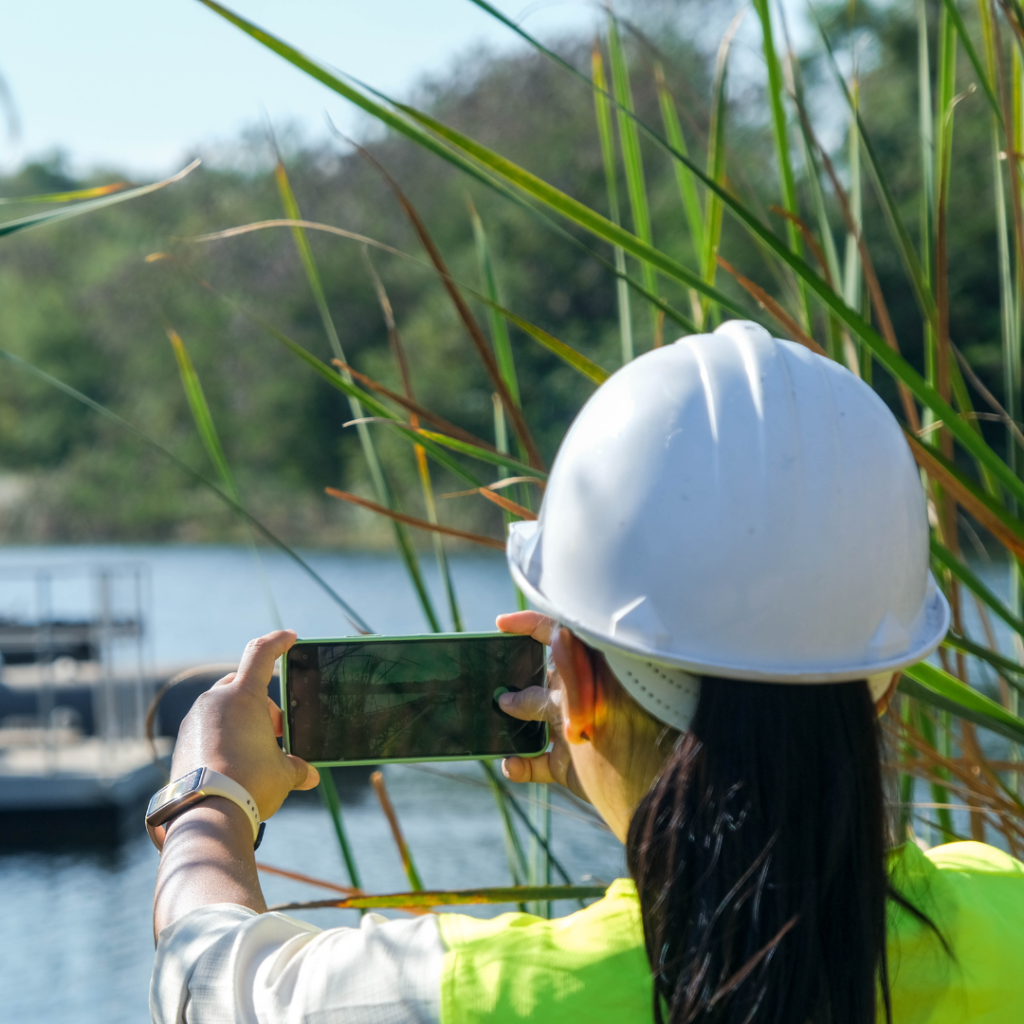5 Best Online Doctor of Acupuncture and Oriental Medicine Degree Programs

Find your perfect college degree
Professionals who pursue the Doctor of Acupuncture and Oriental Medicine degree strengthen their commitment to the discipline. Acupuncture and Chinese medicine are among the fastest-growing forms of alternative medicine today.
With their whole-person focus, many practitioners of Western medicine are also endorsing acupuncture and Oriental medicine as viable alternatives.
Quick audio summary:
Overview
Acupuncturists now have an independent Standard Occupational Code (SOC) in the U.S. Bureau of Labor Statistics Occupational Outlook Handbook. This became possible through the combined efforts of the National Certification Commission for Acupuncture and Oriental Medicine (NCCAOM) and other professional organizations.
The Standard Occupational Code for Acupuncturists means that the profession and practitioners of acupuncture and Oriental medicine are recognized by the government and society. The milestone also opens new opportunities for practitioners and paves the way for growth.
Methodology
All Acupuncture and Oriental Medicine programs are not created equal! We help future professionals in this field by picking top-tier programs, each of which takes pride in these features:
- Delivered completely online or in a hybrid doctorate format that blends web-based instruction with an on-campus learning format, in the same rigorous academic environment as traditional Doctorate in Acupuncture and Oriental Medicine programs,
- Emphasizes the research methods utilized in the field to explore the issues in it and address them appropriately, with the ultimate aim of advancing the practice,
- Offers concentrations for specialized expertise in Acupuncture and Oriental Medicine,
- Develops the essential skills that promote scientific knowledge, including research skills communication, and critical thinking,
- Facilitated a dependable Learning Management System for convenient coursework access,
- Features Acupuncture and Oriental Medicine instructors who exhibit expertise in this discipline,
- Officially accredited by academic agencies.
Please read our Methodology page for more ranking information.
The Best Online Doctor of Acupuncture and Oriental Medicine Programs
Pacific College of Health and Science

Doctor of Acupuncture – Chinese Herbal Medicine Specialization
The online Doctor of Acupuncture with a Chinese Herbal Medicine Specialization program at Pacific College is the nation’s pioneering transitional doctorate program! Due to its longevity, it has the largest network of acupuncture and Chinese medicine practitioners in the country. Current students can tap into the alumni network for professional development and other purposes, too.
Prospective students must possess a master’s degree in acupuncture and herbal medicine for admission. The Doctor of Acupuncture with a Chinese Herbal Medicine Specialization combines the two ancient traditions.
Note that applicants with a master’s degree in acupuncture can still be admitted into the program but will be awarded the Doctor of Acupuncture degree. The curriculum and competencies are the same for both first professional doctorate programs. Alumni from nationally and regionally accredited institutions are welcome to apply.
Current practitioners can continue with their clinical practice, thanks to the program’s convenient format. Students take one course only per semester (part-time) and complete it in four semesters. Full-time studies mean degree completion in two semesters.
The classes are in real-time but conducted online. There’s no traveling to San Diego required. Classes are offered in various time zones, too.
Students deepen their knowledge of Chinese medicine, acupuncture, and biomedicine, as well as their relationship to integrative health care. One-on-one mentorships are provided that, in turn, improve their professional development including their evidence-informed practice.
Courses include:
- Foundations of Evidence-Informed Practice
- Preventive Medicine and Public Health
- Advanced Integrative Diagnostics
- Integrative Pain Management
- Practice-Based Learning
There’s no capstone or dissertation requirement. Funding options include financial aid, military benefits, and flexible monthly payment plans.
Pacific College of Health & Science is accredited by the WASC Senior College & University Commission. The professional doctorate program has Accreditation Commission for Acupuncture and Herbal Medicine (ACAHM) accreditation.
Oregon College of Oriental Medicine

Doctor of Acupuncture and Oriental Medicine
The online Doctor of Acupuncture and Oriental Medicine program at OCOM is an excellent training ground for future generations of teachers, clinical researchers, and practitioners. With its emphasis on a balance between didactic coursework and clinical training, its graduates become leaders in the field.
Students gain a broader perspective of Eastern medicine and its relationship to Western medicine. Professional interactions with biomedical practitioners are part of the learning process. Students also develop their research and clinical skills, while maintaining their current practice.
The online program consists of 48.6 credits. This translates to 1,221 hours consisting of 551 hours of didactic instruction and 670 hours of clinical training. Students tackle 20 intensive teaching modules that can be completed in 24 months. The clinical work involves supervised patient care in a clinic.
Students also complete assignments, study reading materials, and work on case studies, among others, between modules. The courses include:
- Applied Integrated Western Medicine I (Orthopedics)
- Applied Integrated Western Medicine II (OB/GYN)
- Applied Integrated Western Medicine III (GI)
- Applied Integrated Western Medicine IV (Behavioral Health)
- Applied Integrated Western Medicine V (Metabolic Syndrome/Diabetes)
- Dui Yao
- Shang Han Lun
- Huang Di Nei Jing
- Wen Bing Xue
Students also gain clinical research skills through a dedicated course and a seminar series. The latter involves presentations of research in complementary and alternative medicine including Chinese medicine. Students also complete a capstone project.
There are two specializations offered – aging adults and women’s health. The women’s health specialization focuses on women’s health issues. The aging adult’s concentration covers geriatric issues.
The learning objectives of the DACM program cover competencies in the patient care domain, systems-based medicine, and evidence-informed practice. Students also become committed to professional development.
A master’s degree in Chinese medicine is the minimum admission requirement.
Oregon College of Oriental Medicine’s Doctor of Acupuncture and Oriental Medicine is accredited by the Accreditation Commission for Acupuncture & Herbal Medicine (ACAHM).
Won Institute of Graduate Studies

Doctor of Acupuncture
The online Doctor of Acupuncture program at Won Institute is designed for current practitioners with a license and a master’s degree in acupuncture. Students are in the program for career advancement purposes including obtaining degree parity among healthcare providers with doctorate degrees.
The one-year professional doctoral program has a 24-credit curriculum with eight courses spread over three terms. The courses are offered in an online asynchronous format. Students spend 9-10 hours, on average, per week of class time aside from preparation and study.
There’s also a community-based clinical experience that strengthens the 390 hours of coursework. Students learn about integrative medicine and gain clinical research skills throughout the program.
Licensed acupuncturists who want to improve patient care and outcomes, expand their clinical practice, and engage healthcare systems are welcome. Scholarships are offered to eligible students.
Applicants must hold a bachelor’s degree in any discipline or a master’s in Acupuncture and Oriental medicine from an ACAHM-accredited program. Prerequisite courses in chemistry, psychology, and biology are also required.
The Won Institute of Graduate Studies has programmatic accreditation from the Accreditation Commission for Acupuncture and Herbal Medicine (ACAHM). The Regional accreditation was granted by the Middle States Commission on Higher Education.
Daoist Traditions College of Chinese Medical Arts

Doctor of Acupuncture and Chinese Medicine (Professional Track)
The Doctor of Acupuncture and Chinese Medicine Professional Track program at Daoist Traditions offers several clinical practice specialties – Cardiology, Obstetrics, Neurology, Orthopedics, and Endocrinology. These are typically associated with Western medicine.
The DACM program develops the competencies required of doctors of acupuncture and Chinese medicine. These include evidence-informed practice, systems-based medicine, and collaborative patient care. Students complete 16 credits, or the equivalent of 305 hours, to earn the Doctor of Acupuncture and Chinese Medicine degree.
Students develop these competencies through didactic coursework and clinical experiences. Current students maintain their clinical practice while in the program, too.
The DACM program combines fully online and hybrid courses. In-person modules are provided. Online courses are in asynchronous and synchronous formats. In-person, week-long classes are conducted once a semester only.
Application materials include an essay, undergraduate or professional-level courses, completion of CLEP or ACE courses, and a current acupuncture license or NCCAOM certification.
Daoist Traditions College of Chinese Medical Arts is licensed by the UNC Board of Governors. The DACM program is accredited by the Accreditation Commission for Acupuncture and Oriental Medicine (ACAHM).
Maryland University of Integrative Health

Doctor of Acupuncture (Chinese Herbal Medicine Specialization)
The on-campus Doctor of Acupuncture with a Chinese Herbal Medicine Specialization program at MUIH has a 190-25-credit curriculum. Full-time students earn the degree in 13 trimesters (four years) provided that 14-15 credits are taken every trimester. Fall and spring are the start dates.
The Doctor of Acupuncture with a Chinese Herbal Medicine Specialization degree focuses on Chinese herbs and their uses. Students learn about integrative medicine practices in acupuncture and Chinese herbs aside from developing professional competencies. These include systems-based medicine, research literacy, and evidence-informed practice.
Graduates become valued members of multidisciplinary healthcare teams. As doctors of acupuncture with a Chinese herbal medicine specialization, their inputs contribute to effective patient care.
The curriculum consists of clinical courses and clinical experiences. The latter include primary and secondary treatments as well as community health treatments. There are three levels of learning, too, namely:
- The Tao: Health in Wholeness
- Ying/Yang: Health in Balance
- Qi: Health in Movement
Students learn as a cohort and in small class sizes. Specialty courses, such as women’s health, are also available.
Applicants must have a bachelor’s degree, minimum, and submit transcripts and a current resume. Admission is on a selective basis.
The Maryland University of Integrative Health offers alternative medicine programs at the graduate level. The regionally accredited institution by the Middle States Commission on Higher Education (MSCHE) is known for its whole-person, relationship-centered approach.
Overview of Online Doctor of Acupuncture and Oriental Medicine Programs
Online acupuncture and Oriental medicine are intended as entry-level doctorate programs. These academic programs combine ancient traditions with Chinese roots and contemporary practices in Western medicine. The ancient traditions remain but adapt to current clinical settings and, thus, bring acupuncture and Chinese medicine to the 21st century and beyond.
Admission Requirements
The minimum educational requirement for admission into the Doctor of Acupuncture and Oriental Medicine programs is a Master’s in Acupuncture and Oriental Medicine or other related fields. Admission will also require compliance with other requirements, such as letters of recommendation, current resume, and demonstration of skills.
Many programs only accept current acupuncture and Oriental medicine practitioners. However, there are also programs that accept students with a master’s degree and little work experience as independent practitioners.
Most students in these academic programs continue with their current acupuncture and Oriental medicine practice while earning a professional doctorate degree.
Time-to-Completion
Doctor of acupuncture and Chinese medicine programs typically have a four-year time-to-completion. This means eight semesters or 13 trimesters.
Some acupuncture schools offer a master’s and doctoral degree program with a time-to-completion of 5-6 years. Students must have a bachelor’s degree in acupuncture and Oriental medicine to be considered for admission.
Format, Curriculum, and Courses
The best online acupuncture and Chinese medicine programs have a 100% online format. Students don’t have to attend on-campus classes, but clinical settings require face-to-face interactions in physical settings. This is true for Pacific College of Oriental Medicine’s transitional program.
The top acupuncture schools also offer flexible schedules that allow students to continue with their acupuncture practice. This is true for the Maryland University of Integrated Health and the Oregon College of Oriental Medicine.
Students may, for example, attend online classes five days a week or on extended weekends. Clinical training is conducted at set times throughout the academic term.
Due to the treatment aspect of acupuncture and Oriental medicine, the didactic coursework of these professional doctorate programs is challenging, to say the least. Students are also exposed to a wide range of clinical experiences including observations of acupuncturists and actual acupuncture treatments.
Lectures, surveys, and hands-on training in Chinese and Western medicine are common, too. Courses cover topics like:
- Electro-acupuncture
- Scalp acupuncture
- Cupping
- Western nutrition therapy
- Chinese nutrition therapy
- Qi gong
- Gua sha
- Cupping
- Moxibustion
Some Doctor of Acupuncture and Chinese Medicine programs also have community outreach activities.
When considering a professional doctorate program, always look for accreditation. In the case of Doctor of Acupuncture and Oriental Medicine programs, the accrediting body is the Accreditation Commission for Acupuncture & Oriental Medicine (ACAOM). This is at the national level.
Ask about regional accreditation, too, since it demonstrates compliance with the rigorous academic standards in higher education. The Higher Learning Commission, Middle States Commission on Higher Education and WASC Senior College and University Commission (WSCUC) are three of the six regional accreditation agencies.
Skills and Competencies Gained
Students develop all the competencies of acupuncture and Oriental medicine in professional doctorate programs. These competencies are grouped as follows:
- Professionalism
- Interpersonal Skills
- Traditional Chinese Medicine Foundations
- Acupuncture Techniques
- Herbal Dispensary Management
- Fundamentals of Biomedicine
- TCM Classics
- Advanced TCM Practice
- Practice Management
- Diagnostics and Treatment
- Safety
- Scholarship and Research
Graduates must demonstrate professional clinical skills in patient care and in a wide range of clinical settings. Compassionate and effective patient care is always at the heart of acupuncture and Oriental medicine!
Learning Objectives
While the specific learning objectives for Doctor of Acupuncture and Chinese Herbal Medicine and related programs differ, graduates are able to:
- Demonstrate a comprehensive knowledge of acupuncture, Chinese herbs, and Chinese medicine including their history, theories, and applications;
- Demonstrate a comprehensive understanding of whole-person health and their biomedical theories in relation to acupuncture and Oriental medicine;
- Demonstrate knowledge and commitment to whole-body patient care in a wide range of clinical settings;
- Develop clinical skills and a collaborative approach in integrative care settings; and
- Maintain a viable clinical practice.
Tuition and Other Costs
Tuition per credit in a typical Doctor of Acupuncture and Oriental Medicine program can be as high as $750. Financial aid, fortunately, is available for many online students. Ask about institutional scholarships, student loans, and private grants, as well as employer reimbursements and military benefits.
Licenses and Registrations
The completion of a Doctor of Acupuncture and Oriental Medicine degree is just the start of your journey! Aside from clinical training, licenses and registrations must be secured to practice these forms of alternative medicine in the United States.
Most states require acupuncture and traditional Chinese medicine practitioners to secure national board certification. The Certification Commission for Acupuncture and Oriental Medicine (NCCAOM) is the certification body. States also require specifications on the scope of clinical practice among acupuncture and traditional Chinese medicine practitioners.

Frequently Asked Questions
Are Doctors of Acupuncture and Oriental Medicine legitimate?
Yes, they are! Acupuncturists and Oriental Medicine practitioners in the United States are required to complete graduate-level degrees and maintain licensure. Their work also includes working as part of a healthcare team with physical therapists, chiropractors, and naturopathic practitioners, among others.
What are Doctors of Acupuncture called?
In Oregon, a licensed acupuncturist with a doctoral degree can use the title “Doctor” but only under specific circumstances. The regulation varies between states, thus, students interested in earning a doctoral degree must ask their state authorities.
Is a Doctorate in Acupuncture and Oriental Medicine worth it?
If you’re interested in promoting your acupuncture practice, you should consider earning a Doctorate in Acupuncture and Oriental Medicine degree. This is true also for students interested in advanced specializations or in academic research into traditional Chinese medicine.
What are the professional organizations for Doctors of Acupuncture and Oriental Medicine?
National Certification Commission for Acupuncture & Oriental Medicine (NCCAOM), Federation Acupuncture and Oriental Medicine Regulatory Agencies (FAOMRA), Council of Colleges for Acupuncture & Oriental Medicine (CCAOM), and the National Acupuncture Foundation (NAF) are a few examples.
Key Takeaways
- Doctor of Acupuncture and Oriental Medicine is an excellent pathway toward career advancement in the field of traditional Chinese medicine. Students learn advanced knowledge and skills that will elevate their clinical practice and improve patient care.
- The field of traditional Chinese medicine is still open for advancement. Students in doctoral degree programs should strive to make meaningful contributions toward this end, too.
Additional Resources:




